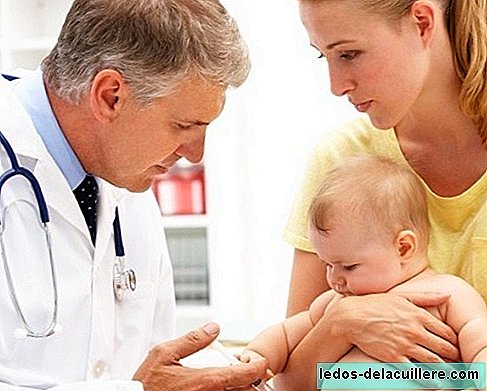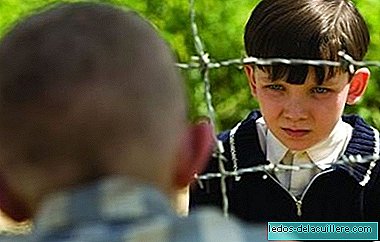Concerns that someone who occupies a position of responsibility question the efficacy and safety of vaccinesWhen proven, it is a practice that saves lives.
Galician MEP Lidia Senra, belonging to the Anova political formation, is causing a stir in social networks following a question he asked the European Parliament last August questioning his safety and Posing for that reason that they are not obligatory.
The question to Parliament
On August 24, the MEP published a question to the European Commission questioning vaccination, calling it "a risk practice" and that "no one has been able to demonstrate the safety of vaccines." The full text of the question is as follows:
Vaccines contain aluminum, squalene, antibiotics and polysorbate, among other components. They also have side effects, contraindications and many side and adverse effects that may appear after vaccination, in some cases leading to death.
Does the Commission not consider that it would be necessary to ensure that families and health workers receive information on all the side effects that each component of vaccines can produce, that vaccines are subject to the prevalent questionnaire prepared by medical associations and that informed consent?
Does the Commission not consider that no Member State should force the population to undergo a risky practice and that vaccination should not be mandatory in any State, since no one has been able to demonstrate the safety of vaccines?
The Commission's response
On October 20, the Commissioner of Health Andriukaitis responded to the Galician MEP on behalf of the Commission defending the safety of vaccines and argued with the following text:
1) Vaccines are only authorized after their quality, safety and efficacy have been evaluated. and it has been concluded that there is a positive balance between risks and benefits related to their use. Upon authorization, all medications, including vaccines, are subject to post-marketing surveillance by the marketing authorization holder and the competent authorities. This surveillance includes the analysis of any new security information. Risk indications are notified at EU level and are evaluated by the European Medicines Agency; if necessary, regulatory measures are taken.
As is done for all authorized medicines, in the summary of the characteristics of vaccines, intended for health professionals, and in the leaflet, intended for patients, information on the safety and efficacy of its use is provided , including side effects and contraindications.
2) Vaccination remains the most effective preventive public health intervention to protect the population against a large number of contagious diseases. The competence in vaccination policies and their organization lies with the EU member states. The Commission expresses its willingness to support cooperation between Member States in relation to national immunization programs and intends to present an action plan to help Member States improve vaccination coverage. The Commission promotes dialogue and communication on the scientific basis of the efficacy and safety of vaccines in order to increase the transparency of the corresponding public health measures.
The networks reacted
The document with the questions has come to light and social networks have been slow to react. The most incisive has been @luciapediatra, a pediatrician who is very committed to informing about the convenience of vaccines, who on another occasion responded to the presenter Javier Cárdenas when he said that the vaccines were responsible for more and more cases of autism.
Upon learning, Lucia published two tweets asking for explanations to the MEP Before replying, although you have not received any response:
Dear @LidiaSenra, could you confirm that you asked this question before answering it with the overwhelming scientific evidence we have? Thank you #vaccineswork pic.twitter.com/N7q5PxX7ig
- Lucia, my Pediatrician (@luciapediatra) December 8, 2017
Dear MEP @ LidiaSenra, excuse my insistence, but could you confirm that you have asked these questions before answering with the overwhelming scientific evidence we have? #vaccineswork pic.twitter.com/VLKbA0oAsI
- Lucia, my Pediatrician (@luciapediatra) December 8, 2017
He then congratulates the Commission for the reply and adds that sowing doubts about vaccines endangers millions of people.
Brilliant response from the commission to MEP @LidiaSenra that I don't know if he is aware of the seriousness of his statements regarding #vaccines. Sowing doubt endangers millions of people. #vaccineswork //t.co/xynzLI6KSp
- Lucía, mi Pediatra (@luciapediatra) December 9, 2017
What official bodies say

Lack of vaccine safety it is not a debate that fits at this point in the film, when official bodies have demonstrated by all means, always supported by scientific evidence, that vaccines are safe and save the lives of millions of children.
Anti-vaccination campaigns are doing serious damage causing vaccination rates to be reduced in a worrying way in some countries and producing outbreaks such as measles that threaten Europe. Some countries, such as Italy or France have recently imposed the obligation for parents to vaccinate their children to enter the nursery or nursery school, which is intended to increase vaccination coverage.
To fight against the falsehoods that continue to circulate against vaccines, health agencies strive to give truthful information to parents to protect their children.
WHO has published a document in which forcefully fight the ten most widespread myths about vaccination, as it is false that they have harmful side effects, that cause autism or that can cause death.
As for the vaccines, WHO indicates that "there is no evidence that vaccines containing aluminum pose a health risk." And polysorbates are emulsifiers used by the pharmaceutical industry, not only in vaccines but also in cosmetics.
For its part, the AEP Vaccine Commission also has information that parents can consult about vaccines, their composition and scientific evidence that supports safety. of the greatest sanitary achievement of the twentieth century.
In Babies and more | WHO again warns of the dangerous myths about vaccination, No, Javier Cárdenas, is more than proven that vaccines do not cause autism, Why not vaccinating children threatens the health of all












